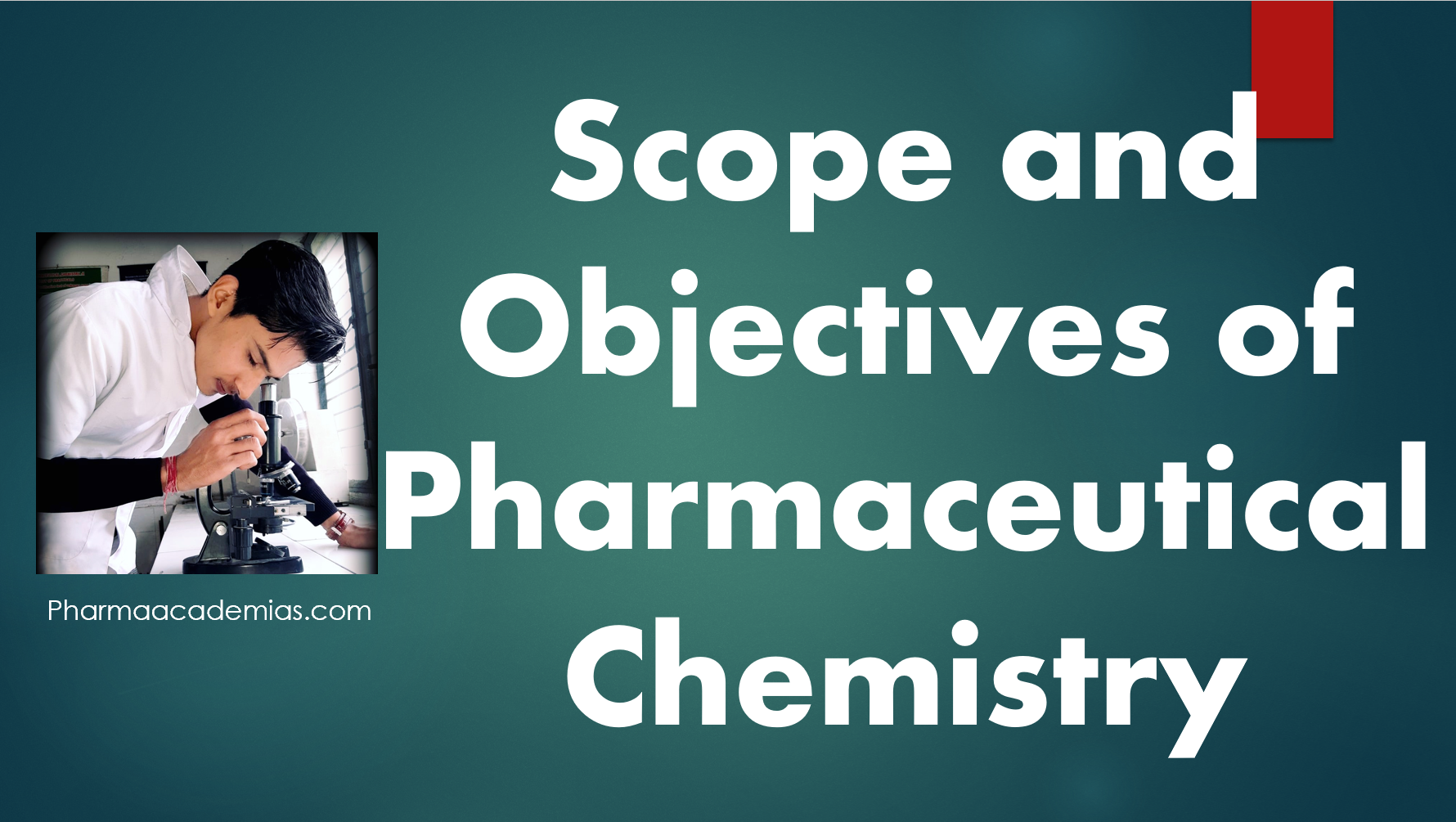Pharmaceutical chemistry is a multidisciplinary field at the intersection of chemistry and pharmacy. It plays a crucial role in the discovery, development, and production of pharmaceutical drugs, as well as their quality control and regulation. The scope and objectives of pharmaceutical chemistry encompass a wide range of activities and goals:
1. Drug Discovery and Development
Design and Synthesis: Pharmaceutical chemistry involves the design and synthesis of new compounds with potential medicinal properties. Medicinal chemists create new drug candidates through organic synthesis, combinatorial chemistry, and computer-aided drug design.
Lead Optimization: Enhancing lead compounds for better efficacy, safety, and clinical suitability.
Pharmacokinetics and Pharmacodynamics: Investigating drug ADME and mechanisms for optimal therapeutic development.
2. Quality Control and Assurance:
Analytical Chemistry: Ensures pharmaceutical product purity, potency, and safety through method development and validation.
Stability Testing: Monitors drug stability for shelf life determination and product safety and efficacy assurance.
3. Formulation Development:
Pharmaceutical Chemistry: Formulates stable, bioavailable drug products for patient use.
4. Regulatory Compliance:
Pharmaceutical Chemistry: Ensures regulatory compliance with FDA and EMA guidelines.
5. Medicinal Chemistry:
The medicinal chemistry is a central aspect, focused on designing and optimizing drug candidates with specific therapeutic properties. Medicinal chemists collaborate closely with biologists and pharmacologists to identify promising drug targets and develop effective treatments for various diseases.
6. Biopharmaceutics:
Pharmaceutical Chemistry: Studies how drug properties impact their behavior in the body.
7. Toxicology:
Pharmaceutical chemists assess drugs’ safety and potential adverse effects through toxicological studies, ensuring that pharmaceuticals do not harm patients.
8. Environmental and Ethical Considerations:
Pharmaceutical Chemistry: Embraces eco-ethics, sustainability, and ethical research practices.
9. Interdisciplinary Collaboration:
Pharmaceutical chemistry requires close collaboration with other scientific disciplines, such as biology, pharmacology, clinical medicine, and material science, to advance drug discovery and development.
10. Education and Training:
Pharmaceutical chemistry has an educational role, training future pharmaceutical scientists, pharmacists, and researchers to ensure a skilled workforce in the pharmaceutical industry.

